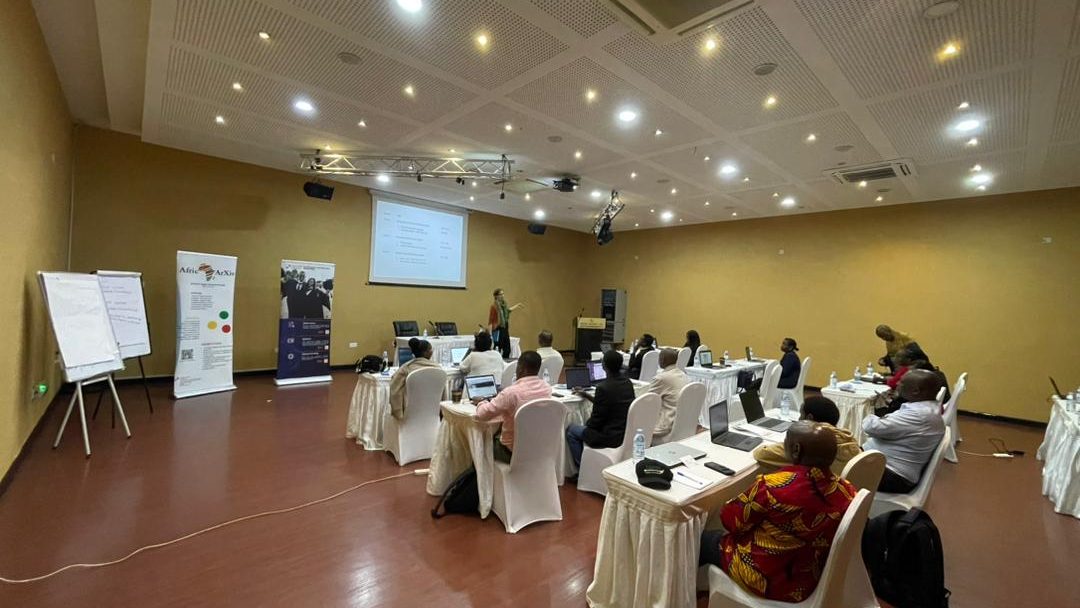In an age where information flows like a mighty river, the traditional role of librarians has evolved dramatically. Librarians have always been the guardians of knowledge, ensuring that books, journals, and research materials are organized and accessible to all. However, the landscape of knowledge dissemination is changing rapidly, and librarians are at the forefront of this transformation. Open science is the key to this new era, and it’s reshaping the way we access, share, and build upon knowledge.
In a rapidly changing academic landscape, librarians are no longer just keepers of books but are becoming gateways to vast digital libraries and repositories of knowledge. To ensure that they are equipped for this crucial role, UbuntuNet Alliance under the AfricaConnect3 project invited 20 librarians to participate in a one-day Open Science training session a day before the UbuntuNet Connect 2023 Conference.
A quest for increased access to digital infrastructures and technologies, making knowledge more accessible, and fostering collaboration across borders led the UbuntuNet Alliance to organize the Open Science Training for Librarians within the region.
The Open Science training, which took place in Kampala, Uganda, on October 25, 2023, covered essential aspects of open science and the FAIR principles. These principles emphasize making research Findable, Accessible, Interoperable, and Reusable. The training was divided into two informative sessions:
- Session I: Introducing Open Science and the FAIR principles: Here, librarians delved into the principles of open access and learned about important identifiers like ORCID, ROR, and DOI, which are crucial for linking researchers and their work.
- Session II: Comparing Scholarly Repository Systems: This session focused on the archiving features of scholarly repository systems and strategies for content curation and metadata management. These skills are vital for preserving and organizing academic knowledge.
As the UbuntuNet-Connect 2023 Conference drew to a close, a groundbreaking development was unveiled on its final day. AfricArXiv, (https://africarxiv.ubuntunet.net) the African preprint repository, was officially launched, marking a pivotal moment in the journey towards open science in Africa.

AfricArXiv is set to become a cornerstone in the African research landscape. As an open-access preprint repository, it provides a platform for researchers to share their work, ideas, and findings with the world. This means that cutting-edge research and knowledge from African scholars and institutions will be easily discoverable and accessible to a global audience.
This initiative not only benefits librarians but also enhances the educational and research landscape in Africa. By equipping librarians with the tools and knowledge to embrace open science, knowledge becomes not just preserved but also accessible and impactful. The ripple effect of this transformation is felt across academic institutions and, ultimately, benefits society at large.
As we look to the future, the combination of the Open Science training for librarians and the establishment of AfricArXiv sets the stage for a more open, accessible, and collaborative approach to research and education across Africa. It’s a testament to the commitment to progress and the belief in the power of shared knowledge to drive positive change.


Pingback: UbuntuNet-Connect 2023: A Resounding Success in Kampala, Uganda | AfricaConnect3